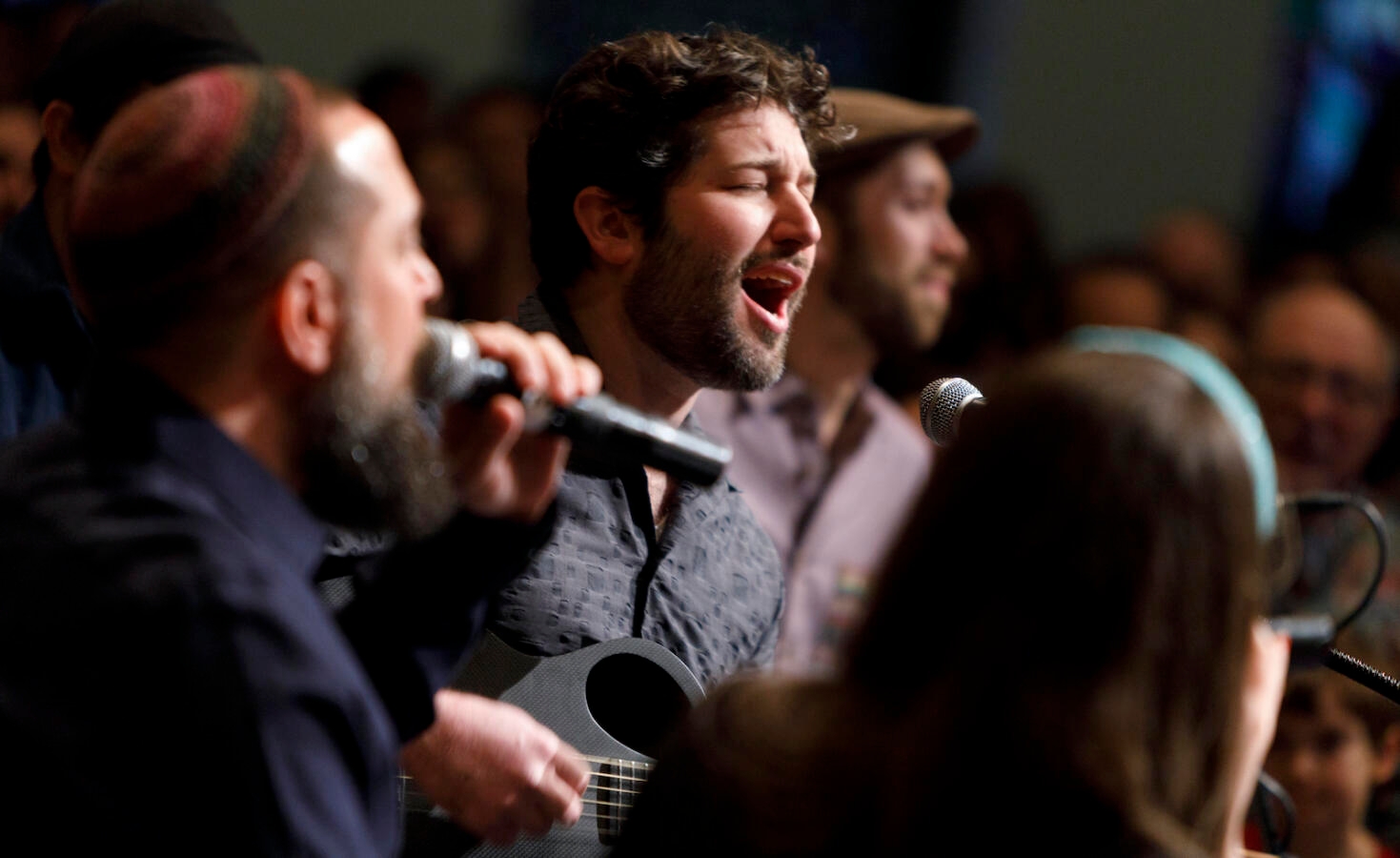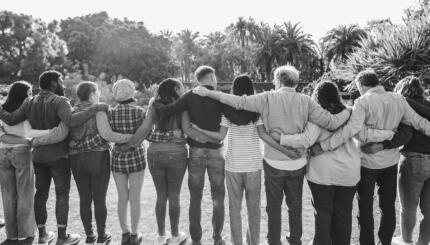Music is the most immaterial and ephemeral of all the art forms. We can’t see music, we can’t grasp it in our hands, but we can feel it working through us and the world. As such, music represents our connection to the divine, to each other, to everything. Music is a wordless prayer that opens up our imaginations to the divine source of all life.
In the Hebrew numerological system known as Gematria, the numerical value of the words for prayer, tefillah, and song, shirah, are identical. From this we can see that music is a form of prayer, and prayer is a form of music. They are like two legs of the spiritual throne, mutually supporting each other. Indeed, the Talmud teaches us that music and prayer are virtually synonymous, declaring:
Where there is song, there is prayer Berakhot 6a
What is the source of this linkage? Is it possible that music can open our ears and our hearts so that we can better sense the nuance and subtleties of the world around us? If we open our mouths and sing our imperfect songs, can we connect with the divine songs of all creation? Can our prayer chants open the gates of heaven? Can our melodies unlock divine mysteries?
Jewish tradition suggests that it can. The prophets of ancient Israel surrounded themselves with music, using its power to help them enter an ecstatic mindset. In one story, the prophet Elisha wanted to hear the word of God, so he requested that a musician start to play. As soon as the musician played, Elisha’s prophetic abilities commenced: “And when the musician played, the hand of God was upon him.” II Kings 3:15
With your help, My Jewish Learning can provide endless opportunities for learning, connection and discovery.
In another story, Saul, who had not yet become king, joined a roving band of prophets and musicians who were playing a harp, drum, and flute to help the prophets enter a state of expanded consciousness. I Samuel 10:5-6 These three instruments — harp, drum, and flute — represent the three paradigmatic elements of music: harmony, rhythm, and melody. Joining the parade of musicians, Saul found that this musical-prophetic experience allowed the spirit of God to rest upon him and allowed him to transform into an ish acher, a different person, to find an alternate reality of himself in which he became capable not only of prophesying, but ascending the throne of Israel.
Music, we might assume, must have opened up the prophets’ ears, enabling them to hear the divine voice speaking through them. Music, in this sense, worked like an elite reconnaissance unit sneaking through the prophets’ defensive bulwarks and barriers, or like a sweet-talking lover wooing his beloved. Music paved the way for the bestowal of the great gift of divine love, of the prophecies which we have at least partly retained in the words of the Torah and later poetry and writing.
Is it possible that music also can help us enter different realms and discover alternate realities in which we might pursue better versions of ourselves? Can music open us up to our own inspiration and prayers as it opened up the pathways of the prophets?
The 18th-century Hasidic master Nachman of Breslov offers that there might be something left that we can access from this source of prophecy. A sacred musician, he explains, is called a chazzan — a Hebrew word with the same root as the word hazon, meaning “vision,” and which is also the common modern term for a prayer leader. The chazzan, Rebbe Nachman tells us, “snatches the song from the place where prophets suckle.”
Melodies form a divine ladder that connects the earth with the heavens. In Hebrew, the word sulam means both “ladder” and “musical scale.” Perhaps the most famous story of a path to the heavens is the story of Jacob’s ladder, in which the patriarch dreams of a ladder on which angels are going up and down. Angels, according to the medieval authority Maimonides, had one essential function: singing.
Jacob’s ladder must then have been a kind of musical scale, with melodic angels rising and descending along with the prayers of mankind. When we sing, we hope to allow ourselves to experience a state of elevation, a taste of the heavens, a glimpse of the best versions of ourselves.
To be a musician then is to be an activist of the spirit. But the music doesn’t do this on its own. It requires us to react to the music, to open up, to change along with it. We must allow the sound of our singing to awaken us, to bring us to positive action, to let song help us to do our work in the world with sensitivity and grace.
Ultimately, melodies are just a bunch of notes—whether they’re fundamentally meaningless or transcendent depends entirely upon how we choose to listen, how we choose to direct our intentions, and whether we let ourselves join the song. Singing signals not an escape from life but an imaginative attempt to remind us what is yet possible. Music offers us rung after rung to climb to the heavens, where we hope to discover our best selves, so that we can then emulate that holiness in our regular lives. Let us find our melodies, and let us find our prayers, and let us bring the world to life.
This essay is adapted from “The Torah of Music: Reflections on a Tradition of Singing and Song” by Joey Weisenberg with translations by Joshua Schwartz. Click here to learn more.



